
The Free Press

On Monday, we reported that CBS Mornings co-anchor Tony Dokoupil was admonished by senior executives for failing to meet CBS “editorial standards” in an interview with best-selling author Ta-Nehisi Coates about his new book, The Message, which features a one-sided anti-Israel polemic. We also published a recording of part of that October 7 meeting, in which CBS’s bigwigs hung Dokoupil out to dry.
Our reporting was picked up everywhere—even The New York Times had to acknowledge the scoop—and two days later it’s still not clear what Dokoupil did wrong, other than ask tough but substantive questions.
In our world, we call that journalism.
But the fallout over the sin of Dokoupil’s questions continued on Tuesday morning during a meeting for the morning show staff.
Originally, CBS News had invited a self-described “mental health expert, DEI strategist, and trauma trainer” named Dr. Donald Grant to moderate a conversation on the issue in an all-staff meeting on Tuesday. That plan was scrapped after old social media posts from Dr. Grant surfaced—including one where he referred to South Carolina senator Tim Scott as “Uncle Tim” (a reference to “Uncle Tom”) and another of him describing a possible second Trump term as “MAGAcide” and the “death of a nation.” Seems like just the guy you should call when you want to smooth things over. (A source close to the drama told The Free Press that the network was “humiliated by his Instagram.”)
The meeting went ahead without Grant—staffers were not able to join from outside of CBS offices in order to prevent leaks. One source familiar with the proceedings suggested it was a “shit show,” with various employees “yelling.” Shawna Thomas, the show’s executive producer, was in tears. So was Dokoupil.
There was an open debate in the meeting about whether it is “fair to talk about whether Israel should exist at all.” There are some people at CBS who think that “Israel’s existence as a state should be part of fair conversation,” said one CBS source. Can you imagine journalists having that conversation about any other country?
No wonder Shari Redstone, the controlling shareholder of CBS’s parent company Paramount Global—at least until its merger with Skydance goes through some time next year—is not happy. A source close to Redstone told The Free Press that Redstone thought that “Tony gave a great interview and modeled what civil discourse should look like. And she disagreed with the action the company took. She’s working with the CEOs to address this issue.”
Meanwhile, Coates himself spoke about the controversy for the first time Tuesday. In a trailer for an appearance on Trevor Noah’s podcast, he accused Dokoupil of “commandeering” the interview. “I don’t think he did Nate and Gayle a service, and I’m really, really sorry for them,” said Coates, referring to Dokoupil’s co-hosts Gayle King and Nate Burleson.
But Coates also revealed a detail that caught our eye. As he was praising King as a “great journalist and a great interviewer,” he said that “Gayle came behind the stage before we went [on] and she had gone through the book, and I’m not saying she agreed with the book. She was like, ‘I’m gonna ask you about this. I’m gonna ask you about that.’ ”
So let’s get this straight: One journalist is raked over the coals for asking tough questions, while another journalist—if Coates’s recollection is correct—previews her questions and faces no repercussions. (King did not respond to a request for comment.)
Which poses a few questions. Chief among them: Are there different rules for different journalists at CBS?
A former CBS journalist told The Free Press that “If she was showing him specific lines of questioning in advance, that would violate journalistic standards. Now are they going to investigate her and say that what she did was not in keeping with CBS standards? I suspect not.”
One last thing: Let’s just say we have pattern recognition around stories like these. So when two sources at CBS told The Free Press that this whole dustup involved the network’s “Race and Culture Unit,” we weren’t shocked.
According to the company’s website, this unit works “in concert with the CBS News Standards and Ethics department to ensure all stories have the proper context, tone, and intention.” It was formed in the summer of 2020. “We must always be aware of how race and culture impacts our journalism—and, in terms of the future of CBS News, this unit will be as important as Standards and Practices,” a CBS executive said at the time.
“These broad and subjective criteria have made them a very powerful voice and many employees believe this has allowed greater bias to creep into editorial decisions at the network,” said one CBS News source to The Free Press. “You see bias when it’s something you don’t agree with.”
Bari Weiss is the founder and editor of The Free Press.
This piece was first published in our news digest, The Front Page. To get our latest scoops, investigations, and columns in your inbox every morning, Monday through Thursday, become a Free Press subscriber today:


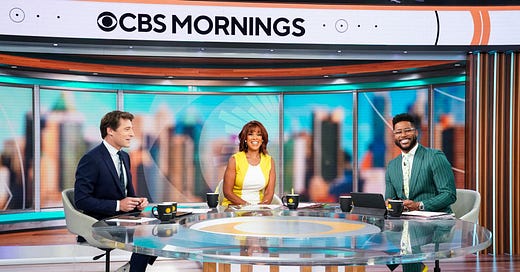


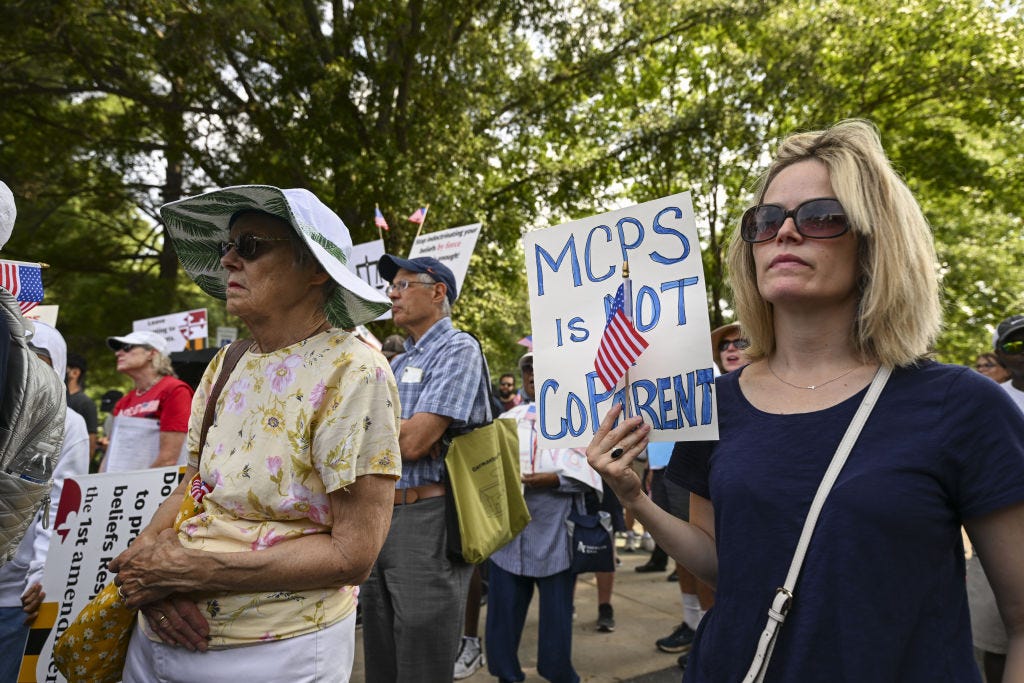

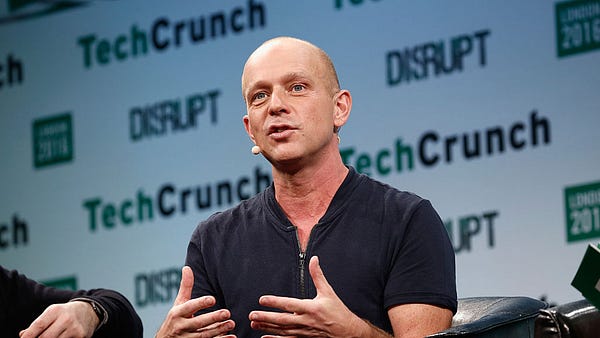



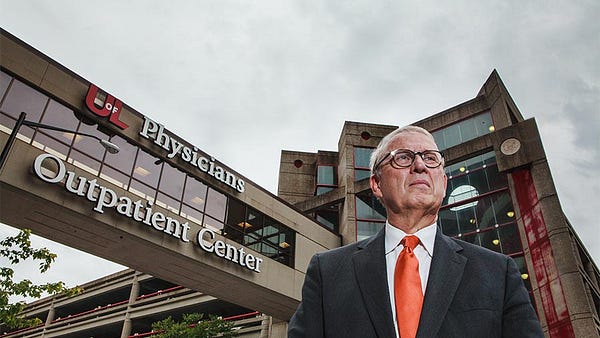

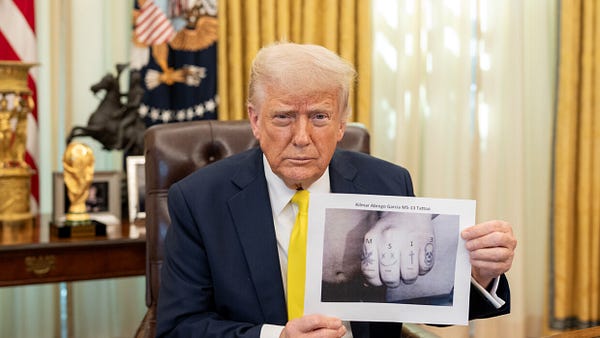

Is Coates simply ignorant, or is he an antisemitic bigot?
A rhetorical question obviously. No amount of ignorance can explain what he had said, done, and written.
https://carolinacurmudgeon.substack.com/p/laffaire-dokoupil-is-ta-nehisi-coates
MAGAcide. Oh boy, I'll never cease to be amazed at how many liberal craniums the Orange Man to this day, lives rent free in. Like he's the most shallow bully around, and the way they react to him, simply emboldens him. It fuels him, and if it stopped by the rent-free craniums, he's just be another empty suit.